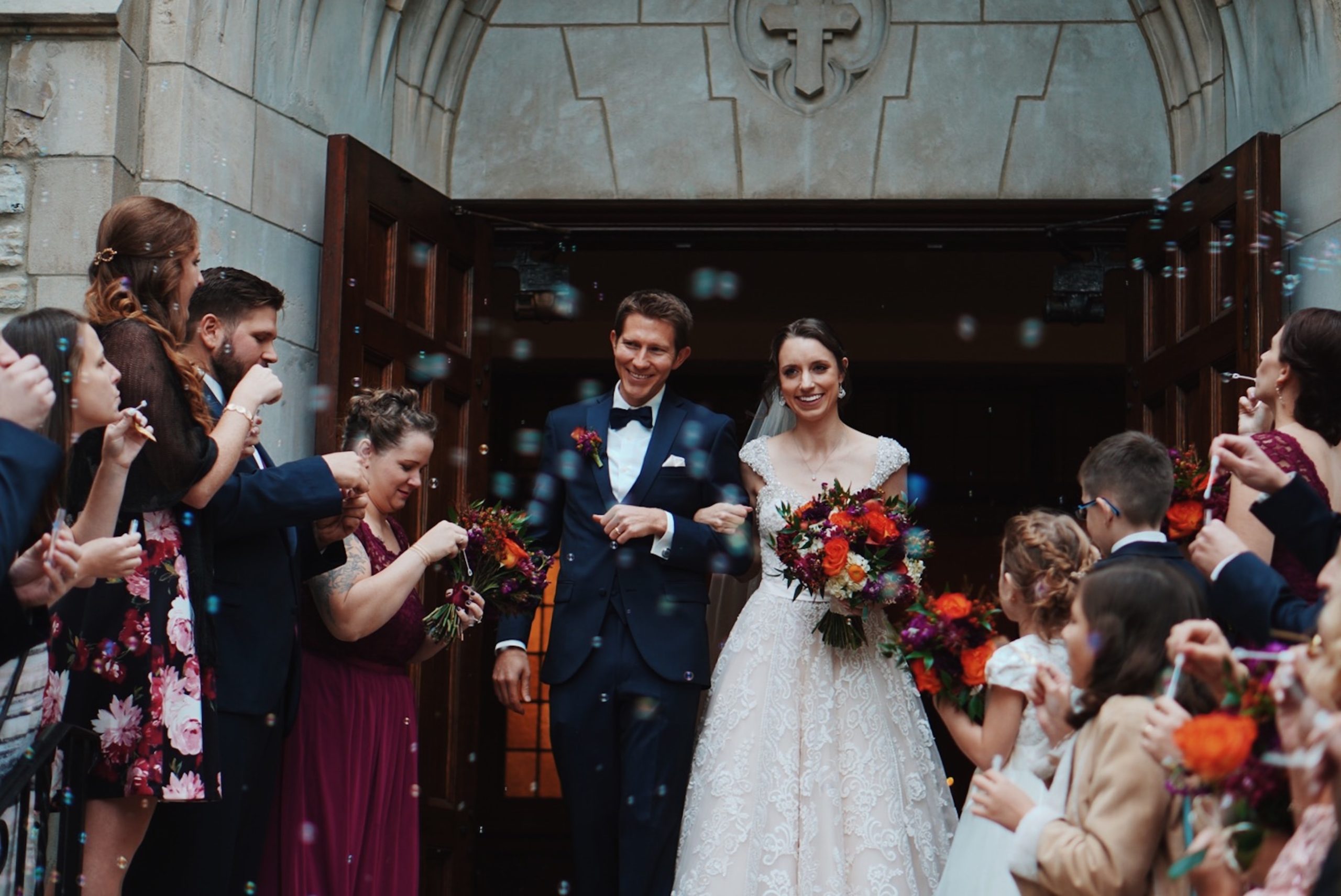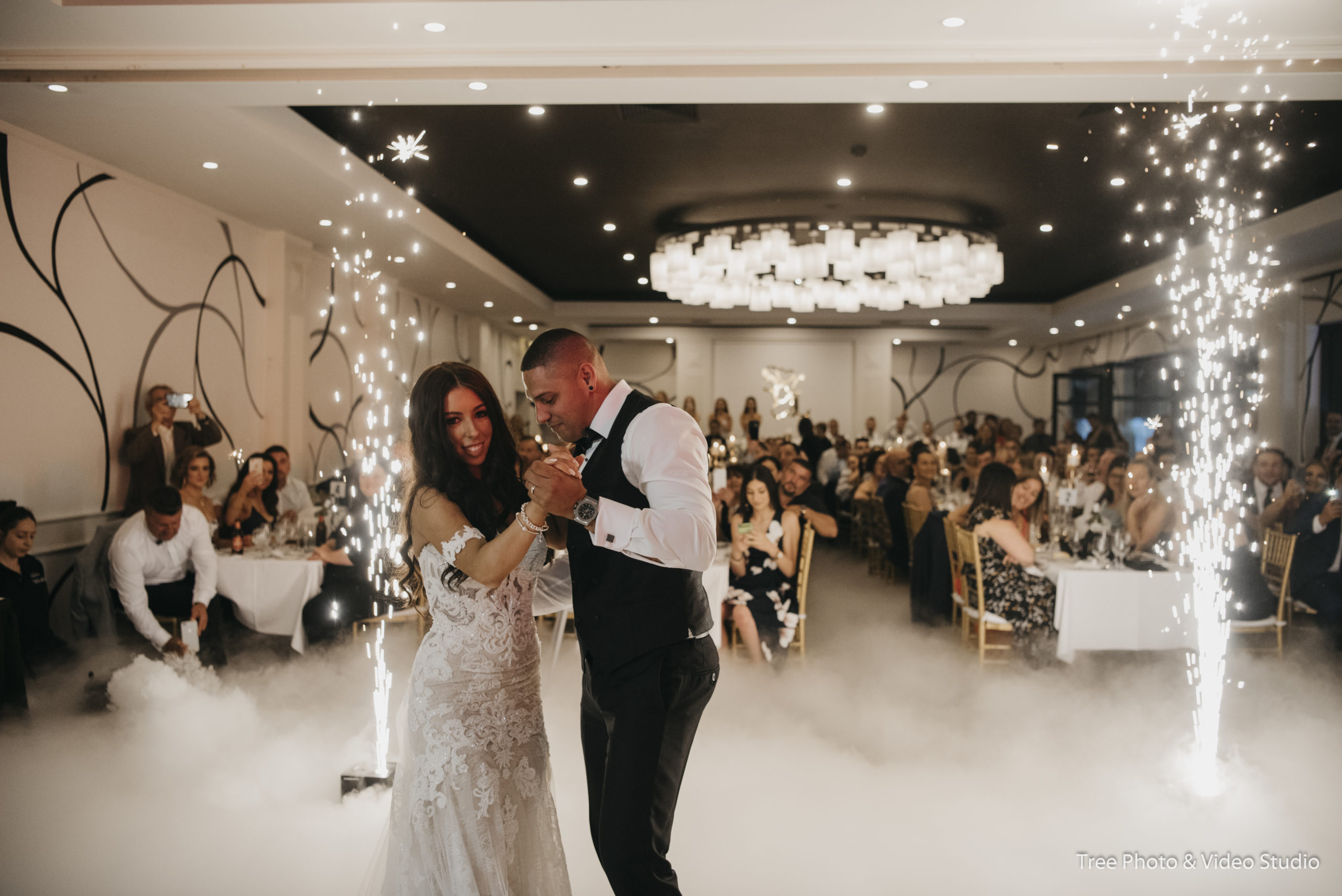As a newlywed couple, choosing a wedding date is one of the most crucial decisions you'll have to make together. No matter how specific your vision for your wedding day is, you won't be able to make any commitments unless you know when you want to tie the knot. How can They pick a date that works for everyone and is still unique to each other?" or "Where do I even begin?" are questions you may be asking yourself.
The process is different for every couple, and that's one of the reasons your wedding date is so precious to you both. We are hoping to be able to assist you in finding the ideal time to say "I do" by providing some planner expertise and personal experience as a newlywed.
Your location, photographer and caterer will all play a significant role in the selection of your wedding day and month. The season of the year you choose for your wedding will substantially impact the rest of your preparations and will be with you for the rest of your life.
What Is The Best Month For A Wedding?
A wedding should take place in one of these months: June, September, or October if possible. Because of the pleasant weather, June is the most popular month for weddings. As a result, there's never a bad time to tie the knot with the person you love (though it does help to have good weather).
There is so much more to the "wedding season" than just the months of late spring and early fall in most parts of the United States. As we go through the year, we'll weigh the advantages and disadvantages of getting married in various months.

March, April, May
March is a lion who enters and leaves like a lamb. Flowers bloom in May after April showers. These are the springtime sayings that we've come to know and enjoy throughout the years. It's a great time of year to get married, as the weather warms up after the chill of winter. With only St. Patrick's Day, Passover, and Easter falling in the spring, your spring wedding is likely to draw a sizable guest list. It's likely that your pals will be eager to get out and celebrate with you after a long, dreary winter.
Because of the uncertain nature of the weather, a spring wedding is a risk. It's uncertain if the weather will be pleasant and sunny or if a cold snap will occur. The risk may still pay off even if you don't get one of those rare warm, blooming days. As "the season" approaches in April and May, expect to face increasing costs and competition with other brides for providers and venues. It's wedding season, people.
June, July, August
By mid-May, the wedding season is in full flow, with June being the most popular month for weddings. Months like July and August offer vacation time as well as long workdays. Because of more flexible jobs and school schedules, it will be easier for many of your wedding guests to get away from their daily routines. Your guests are more likely to have a little extra money in their budgets for travel and wedding gifts if they're not in the midst of the Christmas season. Summer brings an abundance of flowers and fruits, so you'll be able to choose from a wide variety of both.
However, it's not quite as straightforward as it appears during the wedding season. It's important to keep in mind that the temperature is rising. If it's above 100 degrees outside, you're going to be a hot and sweaty bride with a bunch of hot and sticky guests at your wedding. You should also expect venues and vendors to be more difficult to book and more expensive due to seasonal competition. Finally, vacation plans or other weddings may conflict with your guests' participation at your event.
September, October, November
How much We love fall weddings! The turning of the leaves and the crispness of the air are amazing. Choosing a fall wedding date means that the weather will be cooler, the guests will be happier, and there will be fewer mosquitoes. Moreover, there are a wide variety of pumpkin-themed wedding ideas to choose from.
It's likely that at the start of the new school year, Halloween and Thanksgiving could interfere with wedding plans during these months. Floral arrangements may have to be rethought because there are fewer flowers in season. When it comes to football lovers, an autumn wedding might not be the best time of year to get married. What if your wedding falls on the day of the year's biggest game?
December, January, February
In the winter, it's possible to find a hidden treasure. Winter weddings have a lot to offer, like gleaming fireplaces, evergreen trees, snowy landscapes, less competition (and thus the potential to get a better price), and more vendors and venues to choose from. With a beautiful sunset and a cosy blanket over you, there's nothing more romantic than snuggling up in front of the fire.
Despite its many advantages, there are still some drawbacks to hosting a winter soirée. It's possible that getting snowed in (or out) could affect your wedding plans. Your wedding photos might have to be taken indoors because of the lack of greenery outside. Christmas and New Year's Eve are also on the list.
This time of year is known as the most wonderful of the year, yet it comes with a number of pitfalls for your big day. Travelling around the holidays can be more expensive and complicated, and many people will be strapped for cash.
FAQs About Wedding
To have a wedding that's both sunny and cheery, spring is the finest time of year! The flowers are in full bloom, thanks to the moderate weather. If you want to be married in the spring, you'll have to pay extra because so many people are doing so.
The greatest months for a wedding are June, September, and October. Because of the pleasant weather, June is the most popular month for weddings. That being said, there is no incorrect time to get married to the love of your life (though it does help to have good weather).
When Should You Choose A Wedding Date?
Every couple has their unique approach to picking a date, but one good starting point is thinking about how much time you'll require for planning. Average engagements last roughly 15 months, according to a study.

Most couples benefit from giving themselves at least a year to prepare for their wedding. From researching and buying your bridal gown (which can take up to 11 months) and arranging the reception venue, a wedding date at least a year in the future will give you plenty of time for everything (some are booked a year in advance).
Finding your favourite venue and finding out what dates they have available before making your save-the-dates (or making your heart set on a specific day) is recommended because they may already be booked.
Alternatively, if you tend to get anxious about major projects, planning a wedding year in the future could be a source of worry for you. You might wish to explore a shorter engagement in this situation. There's no such thing as a wrong answer. Even though you'll have to race to the finish line in order to get your wedding date set six months after you've been engaged for the first time, some people thrive under pressure.
Consider Any Dates That Have Meaning For You.
A wedding on the anniversary of your first date, your first kiss, or your grandparents' wedding anniversary would be very romantic. Some cultures choose a date using traditional techniques; for example, Japanese families consult the koyomi, an old astrological calendar, to determine the most auspicious day.
It's possible that you won't be able to get married on the exact day you want because it falls on a Monday or because the location you like is already booked, but you should be able to get close. (Tip: In your ceremony programmes, you can inform your guests about the significance of the timing.)
Pick The Season You Want.
The weather can affect your wedding's style, venue, and mood. Consider your wedding personality before deciding on a date and time of year to get married. If you're looking for drinks with a tropical twist and a dark atmosphere, go no further.
Summer weddings are the best option. What are you looking forward to this holiday season? Winter weddings are a great option. Weddings in the fall are all about rich hues, nostalgia, and mulled apple cider, while spring weddings are all about freshness, pastels, and daffodil bouquets.
What Is The Cheapest Month To Get Married?
When selecting a wedding date, keeping an eye on your finances can be helpful. For example, the months of June, September, and October are among the most popular for weddings, which means that prices will rise. If you want your venue and all of your vendors, you'll have to compete against a slew of other couples. In addition to Valentine's Day and Christmas, February and December are particularly popular for weddings because of these two holidays.
Choose an off-season month if you want to save money on your wedding and receive a better range of venues and vendors. Weddings are most affordable in March, April, and November.
The weekdays are also important: Saturday nights are the most expensive, but if you are married on a weekday, you'll be able to afford anything you want (venues may even bid against each other to get your business).
What About Holidays?
Having a Christmas tree or heart-shaped wedding cake at your wedding sounds like you're a couple who wants a festive wedding experience. Do you want to honour your Irish roots? Choose March as the month of choice when everyone is already in the St. Patty's Day spirit. It's never too early to plan a pastel-themed wedding and an Easter egg hunt.
The Fourth of July is a time for family get-togethers and fireworks. In addition, Long weekends coincide with several holidays, making it more convenient for guests travelling from out of town to attend. Make sure to keep in mind that some visitors may not want their vacations disrupted by a wedding.
There are some days when getting married is more fortunate than others.
Are you getting married on a lucky day because you're a bit superstitious or because you want to pay homage to your religious or cultural roots? We comprehend—no harm in ensuring that the planets align on your big day.
Tuesdays, according to Jewish tradition, are auspicious days for weddings. Throughout the Torah, God declares that the third day of the week is a pleasant day for us to enjoy, which means that Tuesdays are the best day to pay homage to one's Jewish roots.
Do you have a smattering of Irish ancestry? Choose New Year's Eve, December 31st, for your marriage ceremony. The Irish consider this day to be auspicious. As a bonus, what better way to start the new year than with a new partner?
According to Chinese tradition, dates ending in either "8" or "9" are considered auspicious. When it comes to money, "eight" and "nine" are both close in sound to the term "wealth." In addition to being an auspicious day, the Chinese New Year has a different date every year, determined by a complicated calculation of lunar occurrences.
Finally, June is a good month for history buffs to get married. Juno, the Roman goddess of marriage, inspired the month's name. Couples that pay homage to her month will be in her good graces.
